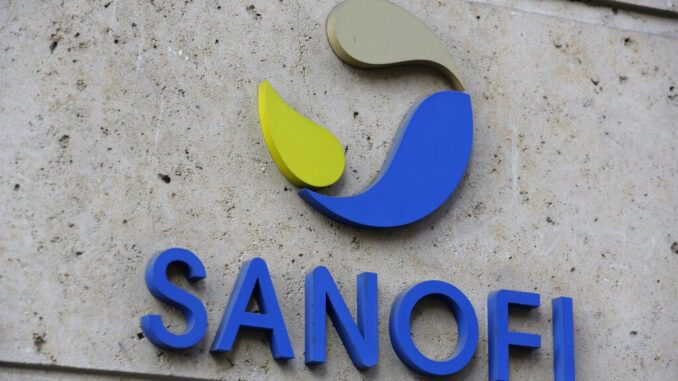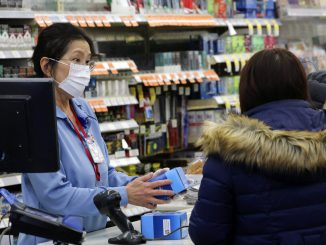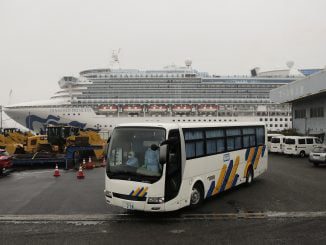
LONDON — Drugmakers Sanofi and GlaxoSmithKline said Friday that their potential COVID-19 vaccine won’t be ready until late next year because they need to improve the shot’s effectiveness in older people.
The companies said early trials showed the vaccine produced an “insufficient” immune response in people over 60 because it didn’t contain enough of the material that triggers the production of disease-fighting antibodies. They said they plan to reformulate the vaccine and do more testing, which is likely to delay approval to the fourth quarter of 2021 from the middle of the year.
“The results of the study are not as we hoped,” Roger Connor, president of London-based GSK Vaccines, said in a statement.
The delay is a setback for plans to vaccinate large numbers of people around the world amid a pandemic that has already taken more than 1.5 million lives. GSK and Sanofi plan to produce up to 1 billion doses of their COVID-19 vaccine annually, and they have signed agreements to supply millions of doses to the U.S., European Union, Canada and developing countries.
The difficulties underscore the challenges scientists face as they race to develop COVID-19 vaccines, condensing a process that usually takes years into a matter of months. Researchers in Australia said Friday they were abandoning their own vaccine candidate because it produced false positive results to HIV tests.
Public health experts say several vaccines will be needed to end the pandemic, because of the challenges in rapidly producing and distributing enough doses to vaccinate billions of people.
Dr. Penny Ward, a visiting professor in pharmaceutical medicine at King’s College London, said the setback is even more significant because Sanofi is a leading producer of flu vaccines and has large-scale manufacturing capacity.
The delay “will impact their ability to (make) the millions of doses that have been pre-ordered because they have to sort out this dose-response effect question,” she said. “Very unfortunate, I would say.”
A vaccine produced by U.S. drugmaker Pfizer and German partner BioNTech has been authorized for widespread use in the U.K. and a handful of other countries. A U.S. government advisory panel on Thursday endorsed use of the Pfizer vaccine, putting the country one step away from launching its own mass vaccination program.
Sanofi and GSK confirmed that volunteers in their study received less of the vaccine than intended because of incorrect readings produced by two of the commercial compounds used to test the amount of active ingredient in each dose. The lower dose was enough to produce a good immune response in younger people, but the response was much weaker in those over 60, they said.
The manufacturing problem was first reported by Stat, a website that focuses on health and medical news.
Sanofi and GSK said their research to date makes them confident the vaccine will ultimately be successful.
In adults 18 to 49, the vaccine produced an immune response comparable to patients who had recovered from COVID-19, the companies said, citing results from the early stage trials.
In addition, Sanofi and GSK have now tested a reformulated version of the vaccine on non-human primates. Those tests showed that the vaccine protected against lung damage and reduced the amount of virus in the nose and lungs in two to four days.
The companies plan to start a new early-stage trial of the vaccine in February. That study will compare the immune response in volunteers who get the Sanofi-GSK vaccine with the response in others who receive an already approved vaccine. If those results are positive, they plan to start a large-scale trial to prove the vaccine’s safety and effectiveness in the second quarter.
“We have identified the path forward and remain confident and committed to bringing a safe and efficacious COVID-19 vaccine,” said Thomas Triomphe, head of Sanofi’s vaccine unit.
“No single pharma company can make it alone,” he added. “The world needs more than one vaccine to fight the pandemic.”
Meanwhile researchers at the University of Queensland and Australian biopharmaceutical company CSL said Friday that they would not move forward with their own vaccine candidate because a protein in the shot triggered false positive results for HIV. Follow up tests confirmed that no HIV was present, the researchers said.
The vaccine had proven safe and produced a “robust response” to COVID-19 during Phase One trials, researchers said in a statement. While it would have been possible to re-engineer the vaccine to avoid the problem with false positives, this would have taken too much time in the midst of the pandemic, they said.
“Doing so would set back development by another 12 or so months, and while this is a tough decision to take, the urgent need for a vaccine has to be everyone’s priority,” said Professor Paul Young, co-leader of the project.




